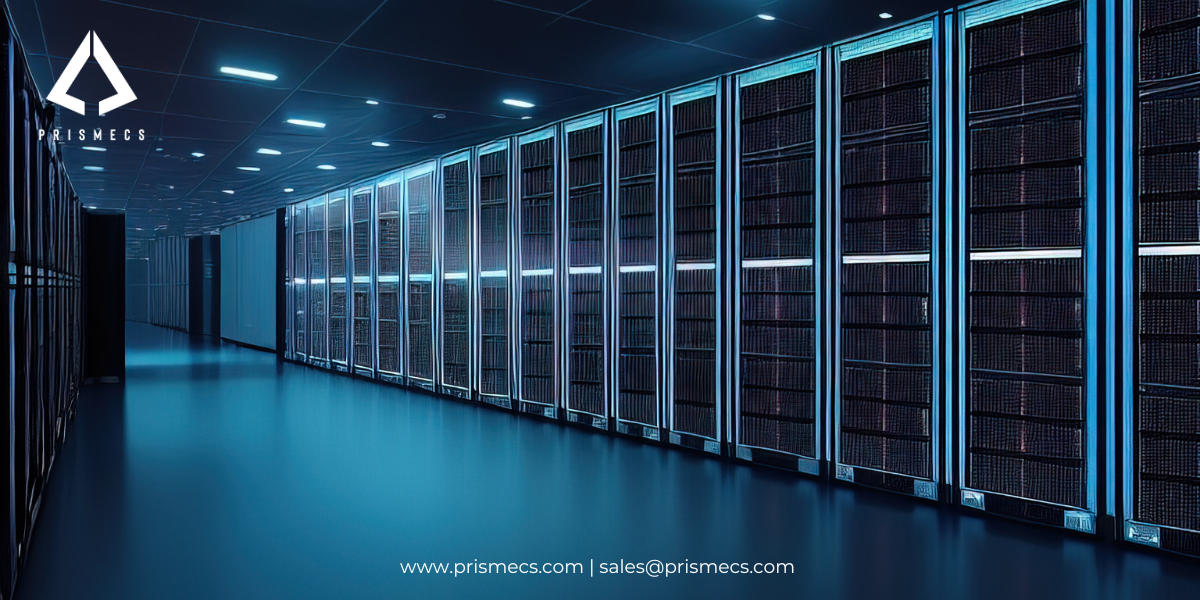
The data center industry is crucial to the global digital economy, powering everything from cloud computing to online services. However, energy consumption is also rising with increasing demand for data storage and processing. Recent estimates suggest that data centers consume around 1% of the world’s electricity, making optimizing energy consumption critical.
This blog outlines the best practices for managing energy in data centers, emphasizing efficiency, technological innovations, and security measures. Optimizing data center energy consumption is essential for reducing extra costs, minimizing environmental impact, and ensuring sustainable growth. This article explores the best energy optimization practices, focusing on efficiency and technological innovation.
Understanding Data Center Energy Consumption
Data centers house computer systems and infrastructure like telecom and storage devices, all requiring substantial electricity. The demand for energy in data centers stems from various factors. Data centers consume energy for a variety of reasons, including:
Server Utilization
Energy consumption is influenced by the efficiency with which servers process data. Underutilized servers consume power without contributing equitably to data processing, leading to inefficiencies.
Cooling systems
Data centers generate substantial heat, and cooling systems must maintain optimal operating temperatures. While cooling systems are essential, traditional air conditioning methods can be energy-intensive.
Power Distribution
Power distribution inefficiencies can lead to energy losses, escalating electricity demand.
Lighting and Support Systems
Lighting and other non-essential systems also contribute to the overall energy footprint of data centers.
Data Center Market Size and Outlook
Experts project significant growth in the data center market, expecting an increase of USD 434.8 billion. A compound annual growth rate (CAGR) of 14.52% from 2023 to 2028. Rapid advancements in machine learning, the Internet of Things (IoT), and cloud computing fuel this growth.
Businesses increasingly embrace digital transformation to meet evolving demands. Prismecs helps data center operators implement scalable, efficient energy solutions to optimize operations and reduce costs in this growing market. These solutions include Distributed Energy Solutions and Equipment Marketing Solutions tailored for data centers to improve energy efficiency and operational continuity.
Data Center Market Size Outlook 2018 -2028
Best Practices for Optimizing Data Center Energy
Some of the best practices include:
Improving Server Utilization
Optimizing server utilization is a key strategy for reducing data center energy consumption. By enhancing server performance, data center operators can minimize the number of servers needed, reducing overall power usage and improving efficiency. These techniques include:
Virtualization
With virtualization, multiple virtual machines can run on a single physical server, maximizing computing power while reducing the number of servers required. This minimizes power generation demands and helps balance energy resources more efficiently.
Consolidation
Reducing workloads on fewer servers decreases the energy used by underutilized servers. By consolidating applications and workloads, data centers can optimize power usage and decrease reliance on the electricity grid.
Load Balancing
Efficiently distributing workloads across servers ensures balanced usage, preventing any single server from becoming overburdened while others remain underemployed. This practice enhances computing power and supports energy-efficient operations across supply chains.
Efficient Cooling Solutions
Cooling systems are essential for preventing overheating in data centers but can also be major energy consumers. Implementing efficient cooling solutions can significantly reduce power generation demands and enhance overall energy systems.
Hot and Cold Aisle Containment
This method helps maintain hot and cold air separation in the data center. Cooling more efficiently by preventing air streams from mixing. It reduces the strain on cooling systems and supports the sustainable operation of large-scale data centers.
Free Cooling
Leveraging external environmental conditions, such as cool air or water, can reduce the need for mechanical cooling systems. This approach decreases reliance on artificial cooling and aligns with the Department of Energy’s sustainable data center designs.
Liquid Cooling
This technology uses liquids to absorb and dissipate heat more effectively than traditional air cooling. Liquid cooling systems optimize computing power by maintaining optimal server temperatures while reducing energy consumption.
Utilizing Renewable Energy Sources
Transitioning to renewable energy sources is a crucial step in reducing the carbon footprint of data centers. By harnessing clean energy, such as solar or wind power, data centers can significantly decrease their CO2 emissions. Some strategies include:
On-site Renewable Energy Generation
Installing solar panels or wind turbines on-site can provide a sustainable power source for data centers. Reducing reliance on the power grid and minimizing energy costs.
Purchase Renewable Energy Credits (RECs)
Data centers can offset their carbon emissions by purchasing RECs, representing the environmental benefits of renewable energy production. This practice aligns with industry efforts to integrate sustainable energy resources into operations.
Adopting Advanced Power Management
Advanced power management techniques can optimize electricity consumption in data centers:
Energy-Efficient Hardware
Using energy-efficient servers and components reduces overall power consumption, ensuring better management of demand growth without overloading the electricity grid.
Power Usage Effectiveness (PUE)
PUE is a metric used to measure a data center's energy efficiency. A lower PUE indicates more efficient energy use, approaching 1.0. This helps data center operators benchmark their energy performance.
Intelligent Power Distribution Units (PDUs)
Intelligent PDUs can monitor and control the power usage of individual devices. This will allow more precise energy management and reduce waste across large-scale computing facilities.
Integrating Artificial Intelligence and Machine Learning
Artificial intelligence (AI) and machine learning (ML) technologies offer significant potential for optimizing data center energy consumption.
Predictive Analytics
AI can analyze historical data to predict future energy needs. This enables proactive resource management and reduces strain on supply chains.
Dynamic Cooling Optimization
ML algorithms can adjust cooling systems in real time based on server workloads and ambient conditions, improving efficiency and reducing dependency on traditional energy resources.
Automated Infrastructure Management
AI systems can automate tasks like balancing loads, allocating resources, reducing errors, and optimizing energy efficiency, ensuring seamless cloud service operations.
Monitoring and Benchmarking
Continuous monitoring and benchmarking are essential for identifying areas for improvement and tracking progress toward energy efficiency goals.
Energy Monitoring Systems
Implementing energy monitoring systems allows data centers to track real-time energy consumption and identify inefficiencies. This helps in reducing unnecessary power generation demands.
Benchmarking against Industry Standards
Comparing a data center's energy performance with industry standards can highlight areas for improvement and set achievable goals. Aligning with Department of Energy guidelines ensures compliance with best practices for energy-efficient data center operations.
Sustainable Data Center Developments
The future of the data center industry lies in sustainable development practices, ensuring long-term efficiency and environmental responsibility.
Green Building Certifications
Certification such as LEED (Leadership in Energy and Environmental Design) demonstrates a commitment to sustainable building practices and energy-efficient operations.
Eco-Friendly Materials
Using eco-friendly construction materials reduces the environmental impact of building new data centers. Sustainable design choices improve supply chain sustainability and support large-scale energy-efficient developments.
Implementing these best practices can help data center operators optimize energy usage, reduce their carbon footprint, and ensure sustainable power generation for future computing needs.
The Significance of Reducing CO2 Emissions
Because of their high energy consumption, data centers significantly contribute to global CO2 emissions. Reducing these emissions is crucial to mitigating climate change and promoting sustainability. By implementing the best practices outlined above, data centers can significantly lower their carbon footprint.
Conclusive Remarks
Optimizing data center energy consumption is imperative for the environment and the business. As data storage and processing needs grow, energy management will help to future-proof the industry. Businesses can optimize server use, improve cooling, switch to renewables, and adopt advanced power management. These steps boost energy efficiency and reduce environmental impact.
These strategies cut electricity demand and enhance disaster recovery. They also support long-term sustainability and strengthen security. Businesses can maintain operations while improving efficiency and reducing risks.
Partner with Prismecs for Optimizing Data Center Energy
Prismecs is a leader in data center energy optimization. We help you reduce CO2 emissions, lower electricity consumption, and implement best practices across your data center operations. Our services include O&M, EPC, Technology & Consulting, and Equipment Marketing Solutions to ensure efficiency, sustainability, and reliability.
To avail of our services, call us at +1 (888) 774-7632 or email us at sales@prismecs.com.
Frequently Asked Questions
1: What are the most effective strategies for optimizing energy efficiency in data centers?
Effective strategies include optimizing server utilization, implementing efficient cooling systems, using energy-efficient hardware, and monitoring power usage through metrics like PUE (Power Usage Effectiveness).
2: How does proper cooling improve data center energy optimization?
Advanced cooling techniques, such as liquid cooling, hot/cold aisle containment, and free cooling, significantly reduce the energy required to maintain optimal server temperatures, improving overall efficiency.
3: Why is server utilization important for energy optimization?
Maximizing server utilization ensures that each server operates near full capacity, reducing the number of underutilized servers and lowering overall energy consumption.
4: How can renewable energy sources support data center energy efficiency?
Adopting renewable energy such as solar, wind, or hydroelectric power helps reduce the data center’s carbon footprint while lowering reliance on the electricity grid.
5: What are the benefits of using energy-efficient equipment in data centers?
Energy-efficient servers, storage devices, and networking hardware consume less power and generate less heat, reducing cooling requirements, lowering operational costs, and supporting sustainable energy management.
Tags: Data Center Efficiency Energy Management Sustainable Data Centers Data Center Power Green Data Centers Energy Optimization Data Center Sustainability
recent posts
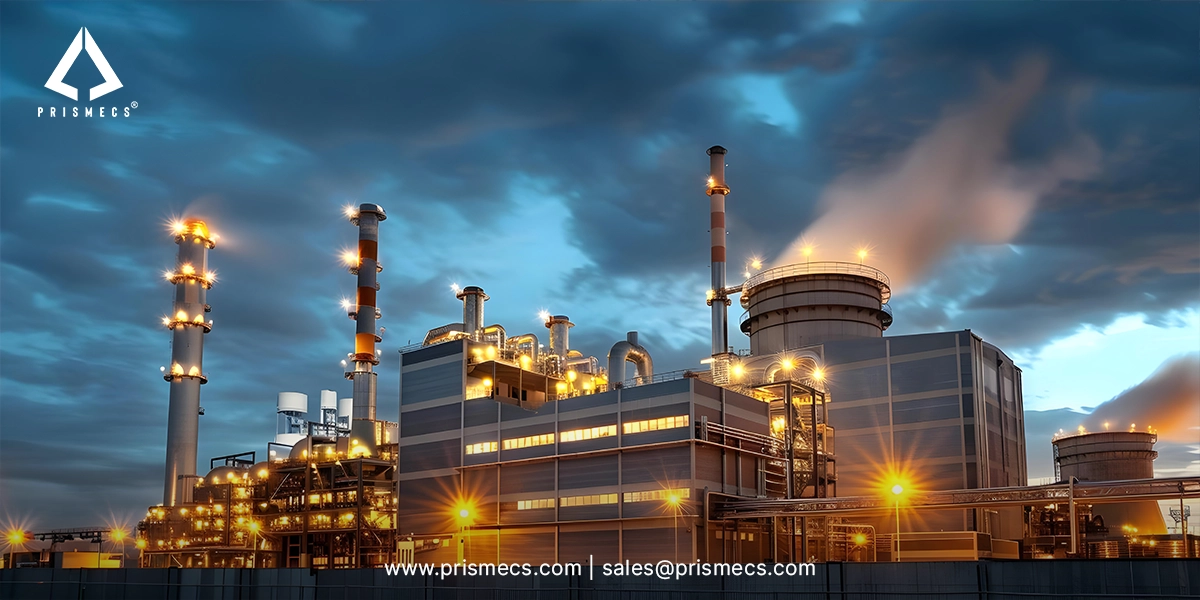
Power Generation
10 minutes read
How to Maximize Uptime in Power Generation Plants
Discover how Prismecs power plant maintenance helps operators prevent outages, protect revenue, and keep turbines running at peak performance. Learn h...
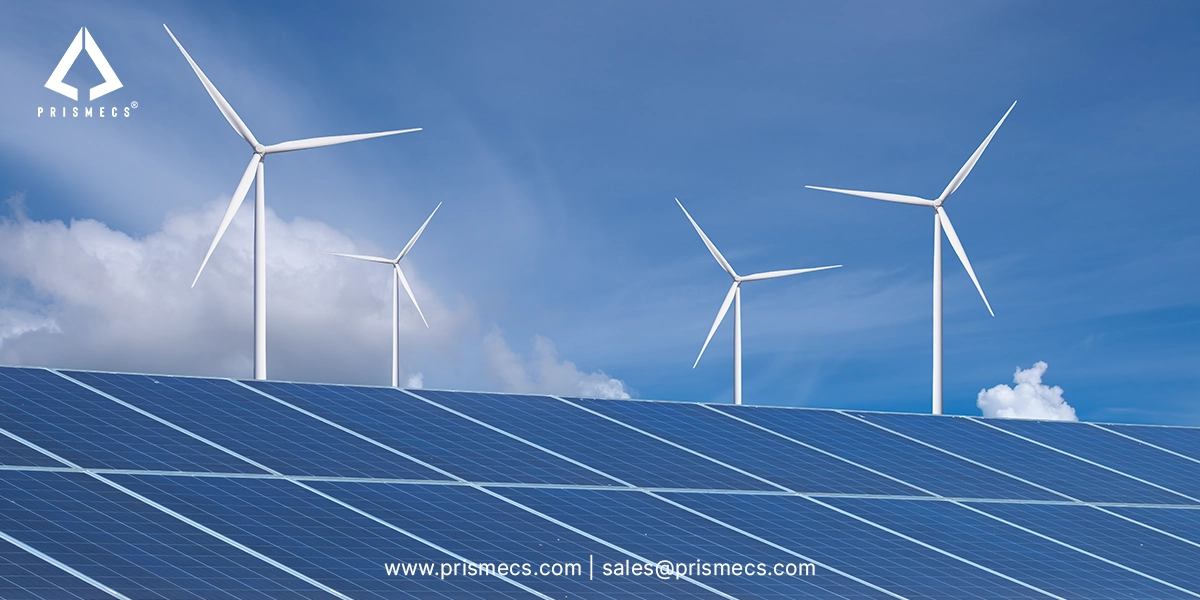
Renewables
8 minutes read
Opportunities in Renewable Energy Development
Explore Renewable Energy Development strategies focused on grid stability, faster deployment, and resilient power systems with Prismecs. Plan your nex...
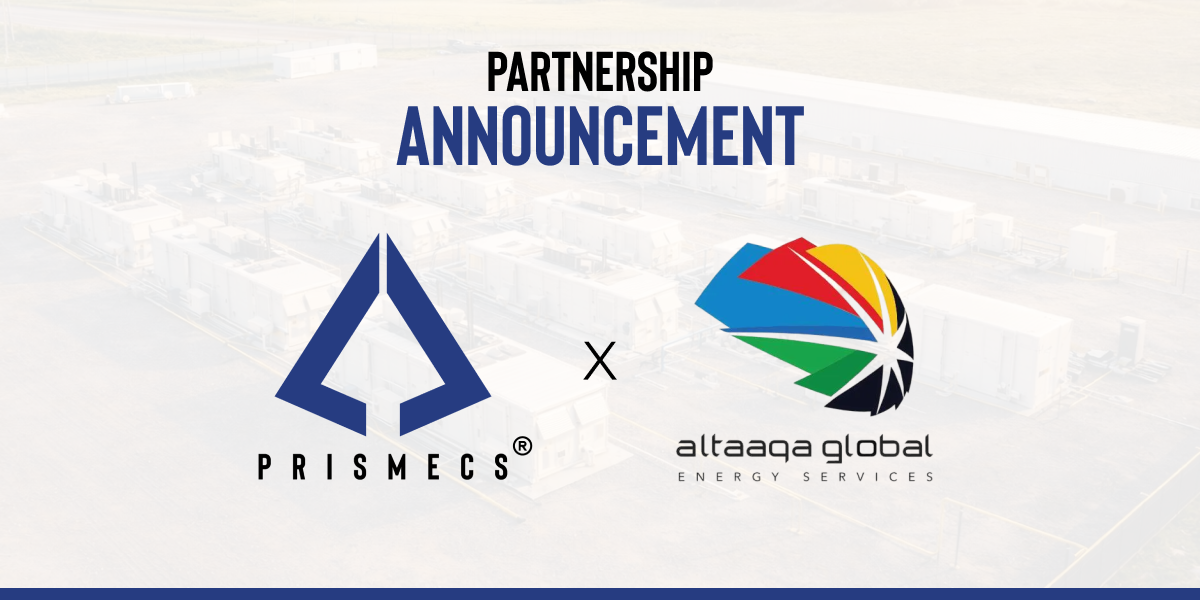
Press Release
2 minutes read
Altaaqa Global & Prismecs Form Strategic Cooperation to Accelerate Modular Power Deployment Across USA
Prismecs and Altaaqa Global Announce Strategic Cooperation to Accelerate Modular Power Deployment in the United States Houston, TX & Dubai, UAE – Febr...
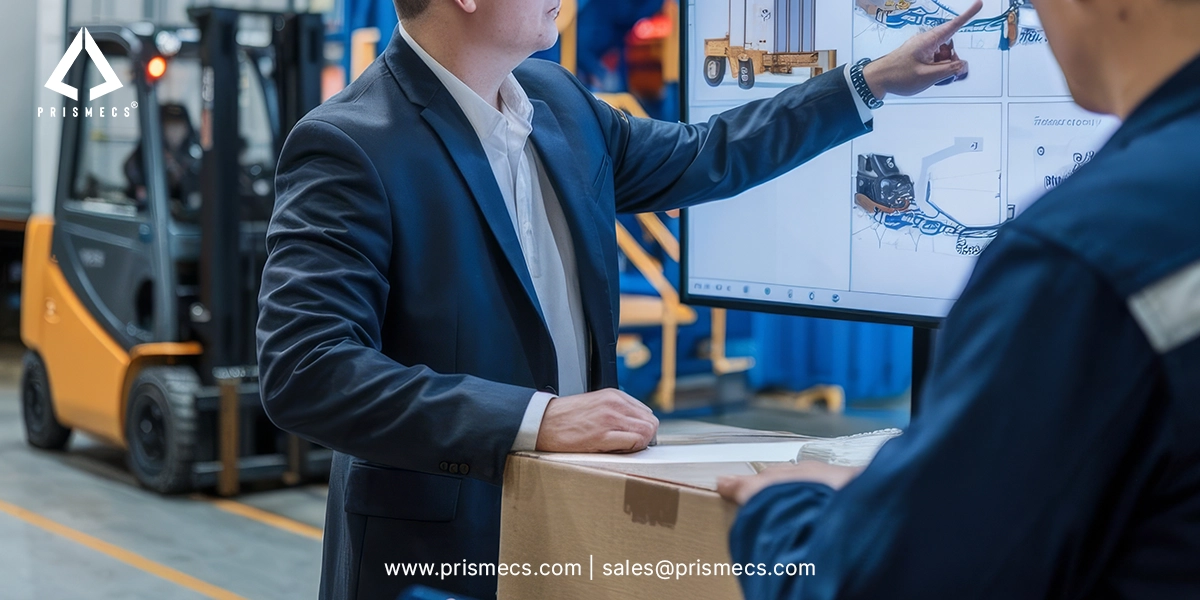
Procurement
9 minutes read
Complete Guide to Industrial Procurement Services
Explore Industrial Procurement Services for power and oil & gas projects. Cut delays, secure critical equipment, and build resilient supply chains wit...